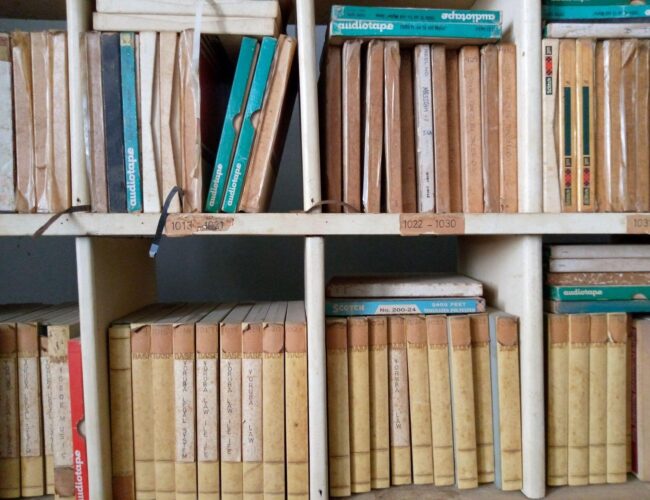African Studies Ibadan Audiovisual and Arabic Manuscripts Archives
During West Africa’s decolonization, researchers and practitioners captured the flourishing of local traditions, including festivals, speeches, songs, and performances-- representing the variety of cultures within the region.

| This project works to digitize and preserve the audiovisual archive of the Institute of African Studies at the University of Ibadan. This collection includes recordings and print materials that document local rites, performances, historical events, and other significant lived experiences. These items preserve the cultural history from a variety of traditions, including the Ozidi epic of the Ijaw, Urhobo Udje songs, Yoruba Gelede, theaters of Duro Ladipo and Kola Ogunmola, and more. Digitizing this archive will not only provide access to historical local practices and culture, but also for connection with modern Nigerian culture. |
Project Details
Location: Nigeria, Western Africa, Africa
Organiser(s):
Modern Endangered Archives Programme (MEAP)
Project partner(s): Institute of African Studies, University of Ibadan
Funder(s):
Arcadia
Funding received: $49,464.00
Commencement Date: 02/2021
Project Status: Active
Project owner? Update this project
